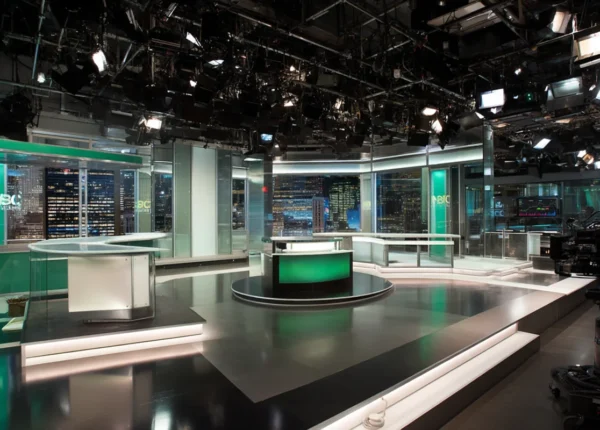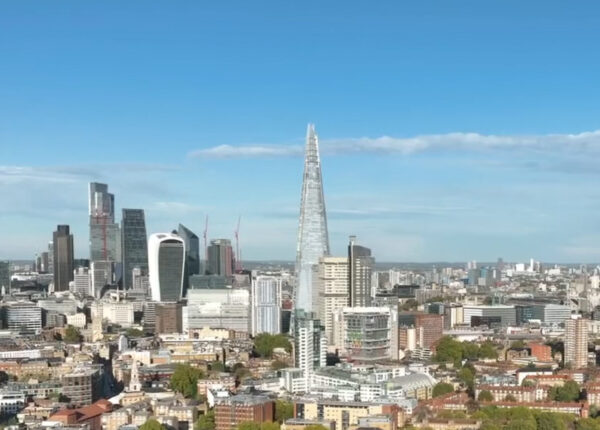Former Permanent Secretary to the UK Treasury Lord Macpherson reviews arguments over the likelihood and potential depth of a future recession
Baron Macpherson
Baron Macpherson of Earl’s Court is a former Permanent Secretary to the Treasury (2005-2016). He served under three different Chancellors of the Exchequer and was created a peer in Prime Minister David Cameron’s resignation honours list. He sits as an independent cross-bench peer in the House of Lords. He is a visiting Professor at King’s College, London. and chairman of Hoare & Co and the Scottish American Investment Trust.
Introduction
My recent paper Recession or No Recession laid out the case that a recession is much more likely than financial markets are currently assuming. For an independent second opinion I turned to Lord Macpherson, former Permanent Secretary at the Treasury, now a visiting professor at King’s College, London and a cross-bench peer in the House of Lords. Nick Macpherson has both a deep knowledge of economics and many years of experience in practical policymaking, having been the head of the Treasury before, through and after the global financial crisis.
Sandy Nairn, Executive Director
Global Opportunities Trust plc
What are your thoughts on the basic proposition that a recession is extremely hard to avoid if interest rates have now moved back to a sustained position where the real return is positive?
The world economy has shown itself to be remarkably resilient in recent years, absorbing numerous shocks. And that’s why I remain an optimist about the long term. Generally, economies grow. But the central banks have been playing catch up. They kept policy too loose for too long.
In my view, the interest rate cycle has some way to run, not least because of the current strength of industrialised economies. It’s easy to forget quite how long it takes for interest rate changes to have an impact: an interest rate increase in mid-2023 will only reach maximum impact at the end of 2024.
The years of cheap money have distorted asset allocation and economic activity more generally. Some sectors are way over-leveraged, and will come under increasing pressure. That in turn will have implications for the financial sector, in particular shadow banking. The Chinese economy – for so long one of the motors of global growth – could well become a drag on demand.
So my central view is that there will be a recession. Previous experience suggests we will only become aware of it when it is well underway. It’s asking too much of economic statistics to reveal a recession in real time. That Hemingway adage about bankruptcy comes to mind: slowdowns tend to happen gradually and then suddenly.
Are there circumstances where bond markets might again accept negative real rates?
When markets and the authorities get things wrong on a large scale, there’s usually a price to pay. We have seen it with bank valuations post 2008. The scale of the change in interest rate expectations over the last two years is extraordinary.
Those who bought long bonds in the years up to 2022 will have been seriously burnt. Among them are central banks, whose reputations – as well as their balance sheets – are seriously impaired. The authorities and market participants are much better at refighting the last war than predicting the next one.
And so, as inflation falls, I don’t expect interest rates to fall quickly. Markets will be more worried about the reemergence of inflation than the prospect of deflation, and will a demand positive return. Of course, a deep and protracted recession could change all that.
A more likely scenario however is relatively shallow recession followed by continuing low growth. When it comes to real interest rates, it’s possible to detect three or four long cycles since 1945. I think 2022-23 may represent the beginning of a new one.
Are there circumstances or tools that Government can use to enforce negative real returns? Examples would include
-
regulation on bondholders, such as banks and insurance companies;
-
pensions being required to hold sovereign debt; and
-
resumed use of central bank levers.
Turkey’s recent experience suggests Governments may be able to buy time to an election. But they can’t defy gravity indefinitely. I would draw a distinction between the USA and other countries. Possession of a reserve currency gives much greater scope to the authorities to set their own rules. The Inflation Reduction Act is a policy which could never have worked in a smaller more open economy like the UK.
Governments across the industrialised world are becoming more interventionist. But central banks are becoming more wary about having too close a relationship with elected governments. And even elected governments are learning that there is an interest rate premium to be paid if they are seen overtly to be pressurising central banks. That doesn’t rule out more covert action. And regulation to ensure pension funds and others hold more domestic assets has a long history.
Remember however that capital is endlessly fungible. I can’t see us returning to a world of capital controls. And so the only circumstance I can see in which government can enforce negative real returns against the markets’ will is if all governments pursue the same policy of financial repression. But in that case we really will be returning to a world of persistent inflation.
In respect of the path of inflation, the paper argues that inflation will be replaced with growth as the markets primary concern, although:
-
Core inflation does seem more entrenched but we don’t have the 1970s structural labour market issues
-
Restricted migration does not help and there does appear to be skills shortages in a number of economies
-
The role of AI is not entirely clear. It feels as if it is going to begin to wash over most of the middle class industries helping productivity meaningfully, but at the cost of the significant employment. We could be about to see a ‘white collar revolution’, as opposed to the previous industrial version, although this is topic in its own right.
We are not yet out of the woods on inflation. Yes, it is coming down quickly in most countries, helped by soft commodity prices. But central banks are right to focus on core or underlying inflation which – to varying degrees across the developed world – has proven more persistent than expected a year ago.
The good news is that labour markets have generally been flexible, reflecting the decline of trades unions, with the result that real wages more than employment levels have been doing the heavy lifting.
The bad news is that as time goes by, there are signs of greater real wage resistance. This will discourage central banks from loosening policy, increasing the prospect of a recession. That may result in underlying inflation finally returning to target by 2025.
It will certainly increase the focus on growth. Here, there will be two issues. First, the classic demand management problem of restoring growth in the economy without increasing inflation. That should not be beyond the ability of central banks, though I would high-light the poor state of public sector balance sheets.
More important in my view is the structural problem of low growth and stagnant living standards. Growth in the EU and UK has been glacial since the financial crisis. And though the US has performed better than Europe, its productivity performance is still disappointing. With China potentially hitting the same wall which Japan did in the 1980s, and protectionism increasing, it’s hard to see a return to the growth rates achieved when globalisation was in the ascendancy.
If the world is serious about climate change, that is more likely to hold back conventional measures of GDP than increase it. We have been through 25 years of extraordinary technological progress, what with the internet and digitalisation. It may have improved the quality of life. But it has had remarkably little impact on productivity or living standards. And so, although AI clearly has huge potential, I don’t see it having a dramatic effect on growth rates.
A number of structures will come under pressure as growth slows and fiscal issues hit. Some will be resilient, others less so.
-
Specifically how does EU do? Does the UK follow its normal path of sterling devaluation?
-
Does reserve currency status continue to provide protection to the US? Any thoughts on the presidential election wildcard?
-
Does the ageing Chinese and Japanese populations create issues any time soon?
Whatever happens to the world economy in the short run, I expect the geopolitical backdrop to remain challenging. The Ukraine conflict could well continue for years. The massive movement of peoples will continue. Climate extremes are set to get worse. Ageing populations will put pressure on those of working age, who in atomised labour markets will find it difficult to expand labour’s share of national income at the expense of capital’s.
In the European Union, I expect more of the same. Brexit and the Ukraine war have probably strengthened the EU’s fabric. Against that, low growth increases the chances of periodic sovereign debt crises in the Eurozone. Hungary and Poland will ensure further integration is impossible at an EU level. Hitherto, the Eurozone has done just enough to keep the show on the road. And I fully expect that to continue to be the case.
But if Germany’s export motor stalls, which seems quite likely, populist right wing parties will be the main beneficiaries. The Meloni government in Italy has shown that this need not be the end of the world. But a more nationalist government in Berlin would make solving Eurozone problems a whole lot more difficult, the more so if France also moves to the right.
The UK too will muddle along. On the positive side, the risk of Scotland leaving the UK appears to be receding. And the likely election of a Labour government should further accelerate the rapprochement with the EU, already initiated by Prime Minister Sunak. However, since Labour will not take the UK back into the single market or the customs union at least for a while, the main trade barriers with our biggest trading partner will remain in place.
Because of the domestic energy price regime, inflation peaked later in the UK and appears to have become more embedded. The recent rise in interest rates across the curve, and the size of the national debt, mean that debt interest will ensure any government has limited room for manoeuvre. It is difficult to see how the country will escape from its current low productivity-low living standard cycle. The time honoured policy of sterling devaluation will remain the main safety valve.
It always seemed implausible that the Chinese Communist Party had discovered the holy grail of a permanent growth rate of 6 per cent a year. Mind you, I can remember saying the same thing to the Chancellor Alistair Darling in 2008 and 15 years on the Chinese economy has doubled in size. But once an economy gets close to the technological frontier, still set by the United States, the going gets much tougher.
The problems in the Chinese property sector are reminiscent of Japan 30 years ago. China, like Japan before it, is facing increasing demographic challenges. None of this is disastrous. China almost certainly has the wherewithal to grow faster than Japan has in recent decades. But it will be at a much slower rate.
That brings me to the USA, whose sheer size, income and technological leadership, makes it probably the biggest wild card when it comes to the future of the global economy. On the face of it, there are plenty of grounds for pessimism. The political impasse of the last decade will surely continue for many years yet.
I would expect the country to remain introspective and protectionist whoever is in power. Protectionism may have supported the economy in the short run but it carries a long term price, as we saw in the 1930s: in the end, it makes everybody worse off.
Nor is there any prospect of anybody gripping the federal deficit and the chances are funding that deficit will become more expensive. If the likes of China and Germany end up running smaller surpluses, there may be rather less demand for US dollars. Against that, the dollar will remain the world’s reserve currency.
The US economy has often performed best when it has had a deadlocked federal government: even now, the USA looks a better bet for a soft landing than any other major economy. And if the world is to break out of its low productivity growth loop, it will be American technological progress which will be responsible.
Equities can easily correct and sovereign bonds may have done much already (unless governments go for the inflationary escape route) other than the risk of default at the fringes?
-
Private equity (and debt) looks to have the biggest risk and has been largely ignored, this could have a very dangerous outcome as liquidity dries up?
As you suggest, financial markets are pretty good at adjusting. However, downturns always expose weaknesses less visible in the good times. I don’t expect the banking system will have too much difficulty weathering a recession: the SVB and Credit Suisse episodes were instructive.
However, tight regulation of the banking sector since 2008 has resulted in an unhealthy growth of a shadow banking sector. Regulators are aware of this; they make regular speeches about the risk. But I am not sure they have really addressed the problem and so there will be failures.
Private equity is clearly under pressure given its reliance on debt finance. In some cases, the adjustment could be painful. But, ultimately, that should be good for the economy. Cheap money has distorted asset allocation. A dose of creative destruction could be reenergising.
Returning to the question of structures under pressure, could we see violent swings to the right or left as the magnitude of the economic problems become clear and actually impact the voting population. Is there any prospect of a return of 1970’s violence on the streets?
Western democracies are pretty resilient. Outside France, political violence has rather gone out of fashion. Collectivism is dead; we all lead a more atomised existence. Much more likely is that electorates will become more alienated and sullen, electing right wing populists who are destined to disappoint them. Politics will become more unpleasant. But I would hope Western European countries can avoid the fate of Hungary and Poland.
Autocratic regimes have been pretty good at suppressing dissent, from Russia to Iran to China. At some point, possibly many years hence, one of these regimes will crack. But that does not mean they will be replaced by compliant democracies. Those who predicted the End of History round about the turn of the century were dangerously deluded.
Meanwhile, the extraordinary movement of peoples will continue. Inequalities between rich and poor countries, and improved communications, make this inevitable.
Does path of greater government intervention continue until it really ends in tears? Is it necessary to have a new version of the UK winter of discontent from the late 1970’s?
-
This time it may not be about fixing structural labour market issues as much as obtaining better productivity growth.
-
How long do you think we take to work through this and get back to a more sustainable position, is it likely to take a decade or so?
It’s tempting for liberals to think there was a golden age of economic policy making from 1990 to 2005, and that if only we went back to it all would be well. Demographic imbalances, and the need to spend more on defence and to finance climate change measures, all mean that the western state will get bigger. Having worked for the British state for thirty years, I am all too aware that government can make big mistakes. But I have also seen governments learning from mistakes, and implementing more sensible policies as a result.
Since the debacle of the Truss-Kwarteng regime in the UK last autumn, both of our main political parties have been much more careful about making unfunded spending or tax cut commitments. And don’t forget, Mr Sunak is three quarters of the way through implementing a planned tax hike of over 4 ½ per cent of GDP since 2020.
I see other countries faced with rising debt interest costs being more careful fiscally. The Meloni government in Italy has been reasonably responsible, pulling back when it made an elementary mistake on the windfall tax on banks. That is progress of sorts. Similarly, Mr Sunak’s decision to reach the Windsor Agreement on the Northern Irish protocol shows a recognition that the UK needs to stop shooting itself in the foot when it comes to its relationship with the EU.
It’s possible to point to similar decisions in other countries. In a strange way, I think both the EU and the UK are being quite careful about their response to the Inflation Reduction Act. It would be tempting to spray money around with ill thought through subsidies. The response to Covid-19 and the invasion of the Ukraine probably represented peak intervention.
I’d like to think in the coming decade we will reach a more sustainable equilibrium. Some improvement in productivity performance will certainly lubricate the wheels: in the case of the UK, that means better focused infrastructure spending, planning reform to ensure houses are built where we want to live, a stronger competition regime and a greater focus on skills. But don’t expect any quick results.
Presumably any meaningful exogenous shock at this point would severely test the resilience of the system given its fragility
We have seen three major shocks in the space of 15 years. The world economy has actually coped pretty well. But it carries big scars. And I do worry about the consequences of another disaster. It would be really helpful if we could avoid one for a decade or more.
Which policy mistakes would worry you most?
Protectionism because it reduces competition and the dynamic benefits of free trade. And a premature easing of monetary policy would almost certainly embed inflation further.
Do you have a range of scenarios as to how this might all pan out if the deep prolonged recession actually happens?
-
There have been various periods in history where economic conditions precipitated conflict do you have any views on this and to counter, what be your most rosy scenario?
I am probably more optimistic than you about the prospects of avoiding a deep prolonged recession, partly because in my experience from the early 1980s onwards, whenever people have been most gloomy, the economy suddenly shows signs of life.
It is possible to paint ever more gloomy scenarios, where depression gives rise to nationalism, war and destruction. Against that, humanity may be imperfect but it is endlessly inventive and capable of acts of extraordinary altruism. And, at the risk of sounding like a 19th century liberal, I still believe in progress.
My experience as a policymaker tells me that it is only when things get really bad that governments show leadership. I saw it in the 1980s, when the Thatcher government was prepared to move away from incomes policy and make radical decisions on taxation and privatisation. I saw it in 2008-09 when Gordon Brown was prepared to evangelise to other leaders, when the likes of Sarkozy and Merkel were hesitating, on the right response to the banking crisis. We have seen it in Mr Zelensky’s leadership of Ukraine over the last year.
I would hope that if the worst happens, governments will take the opportunity to have a grown up conversation with their electorates about what constitutes a sensible economic policy. That means getting the right balance between consumption today and consumption tomorrow. It means continuing to bear down on inflation. And it means being realistic about migration.
I would also hope governments would take the opportunity to pull back from further restrictions on trade. Who knows, the USA might decide to reinvigorate the World Trade Organisation and a rules based trading system? You did ask for a rosy scenario!
Important Information
This information is intended to be of general interest only and should not be considered as an offer, investment recommendation or solicitation, to deal in the shares of any securities or financial instruments.
Investment involves risk. The value of investments, and the income from them, can go down as well as up and an investor may get back less than the amount invested. Past performance is not a guide to future results



